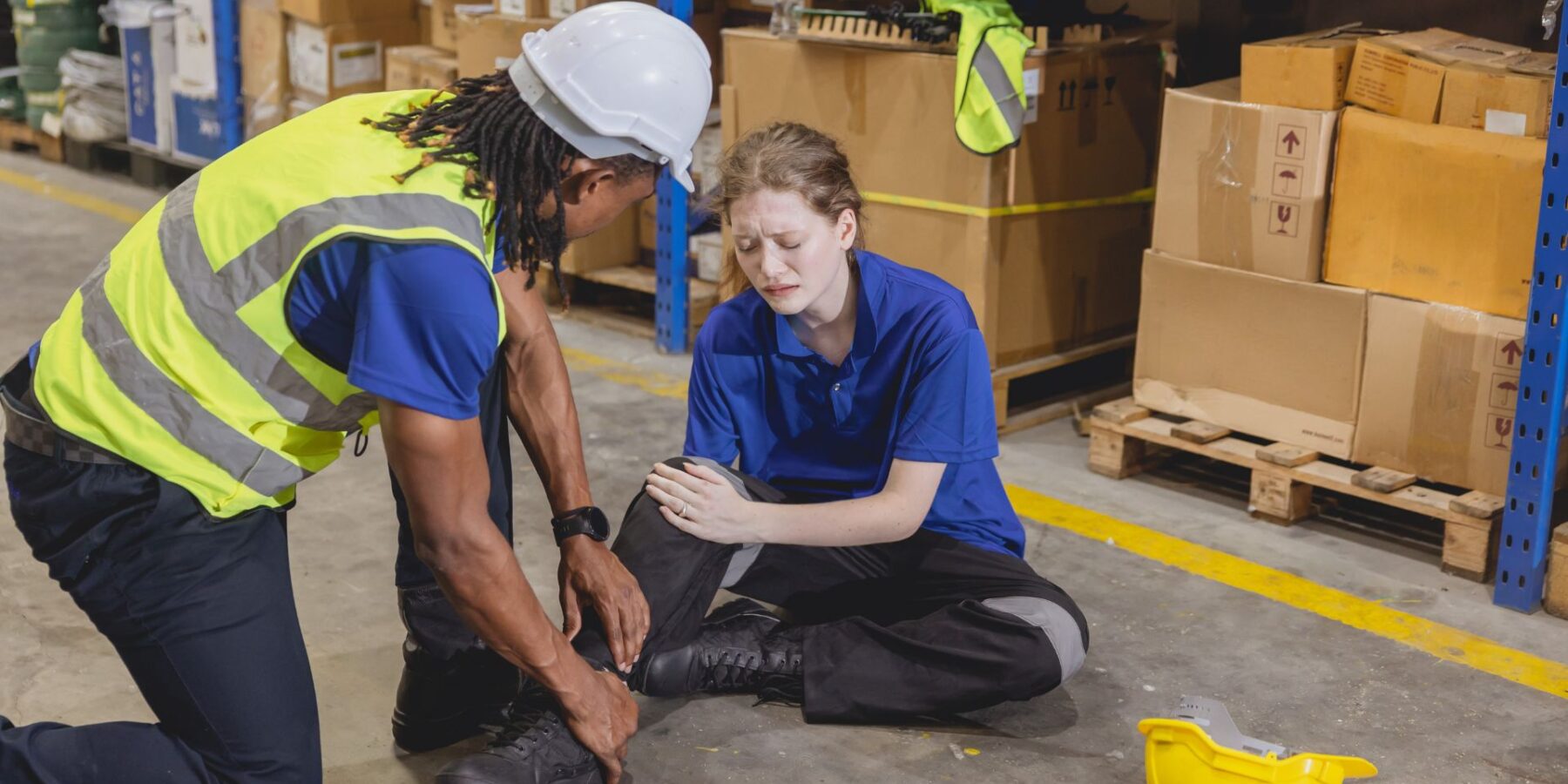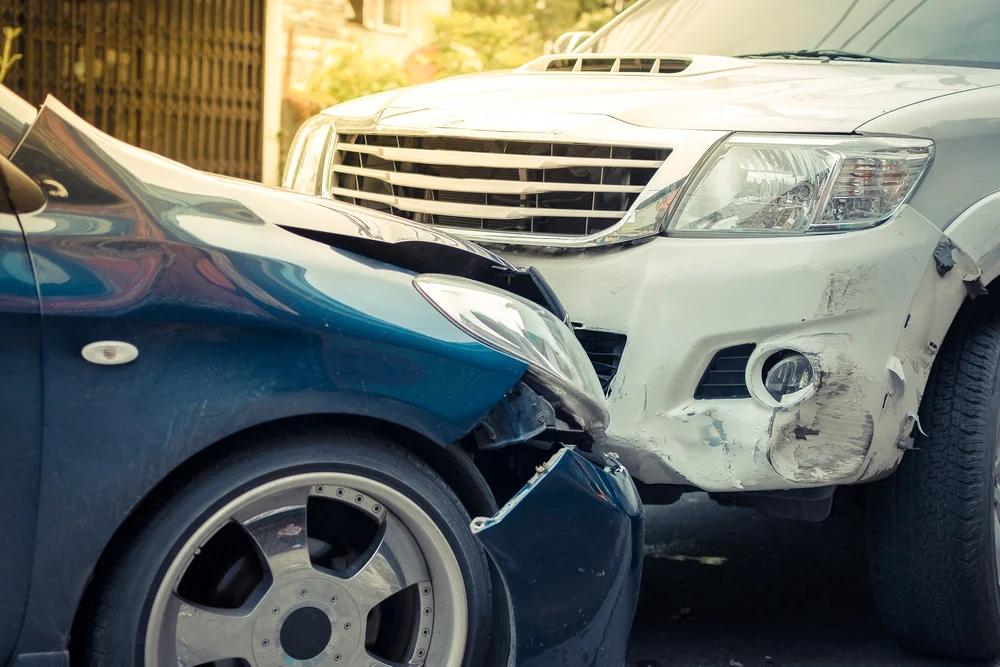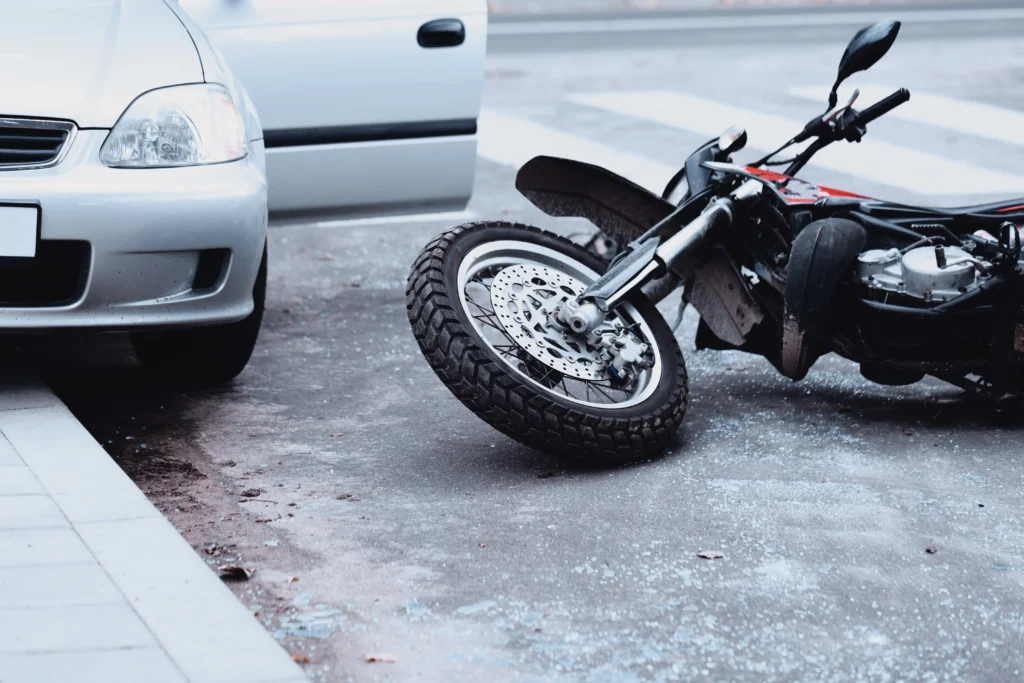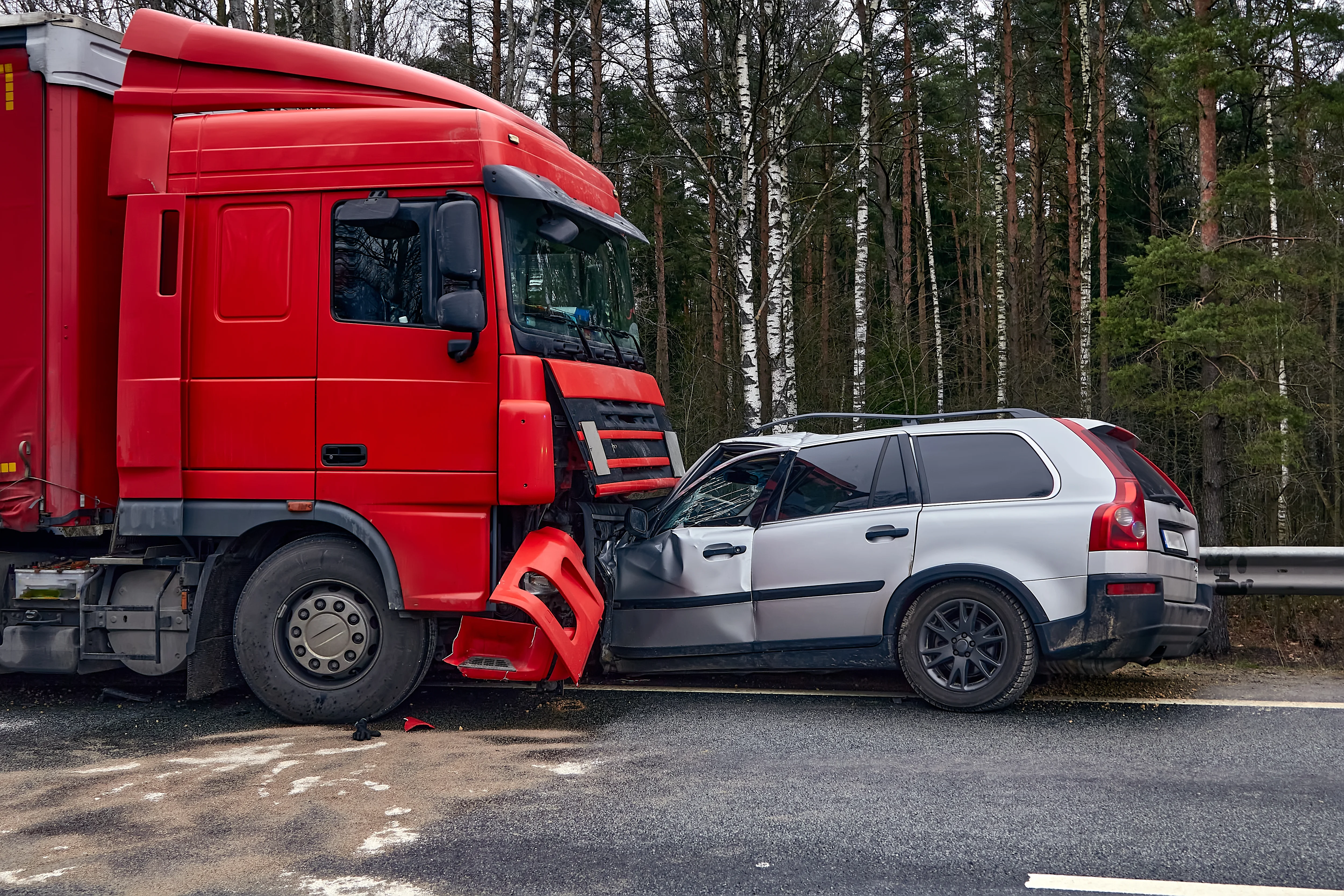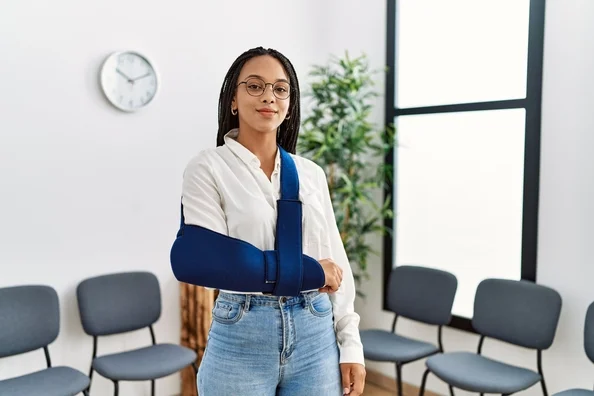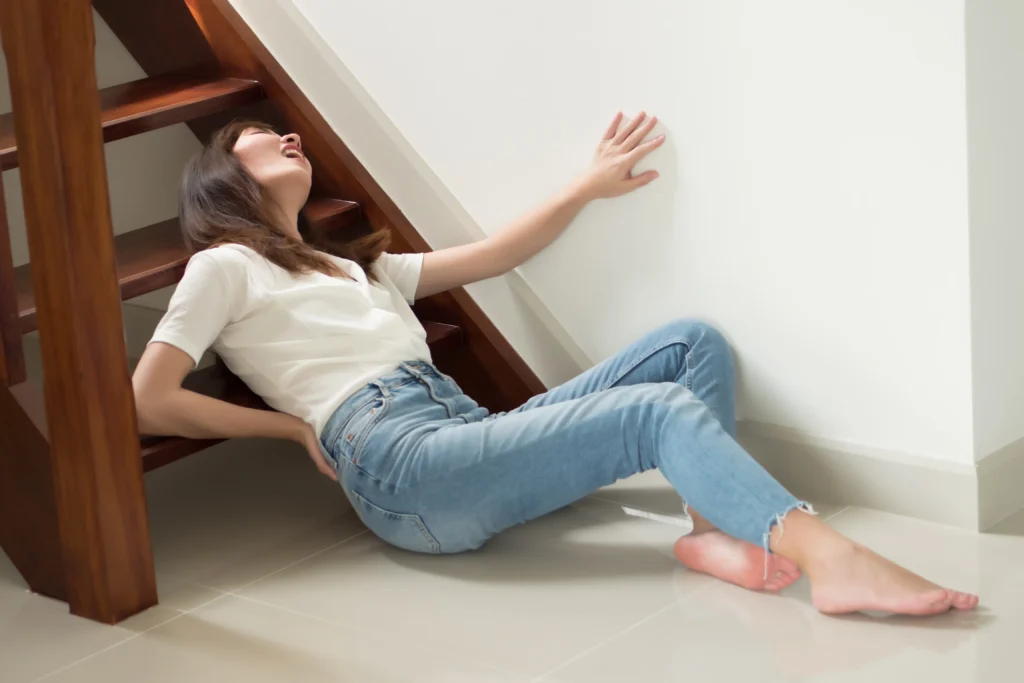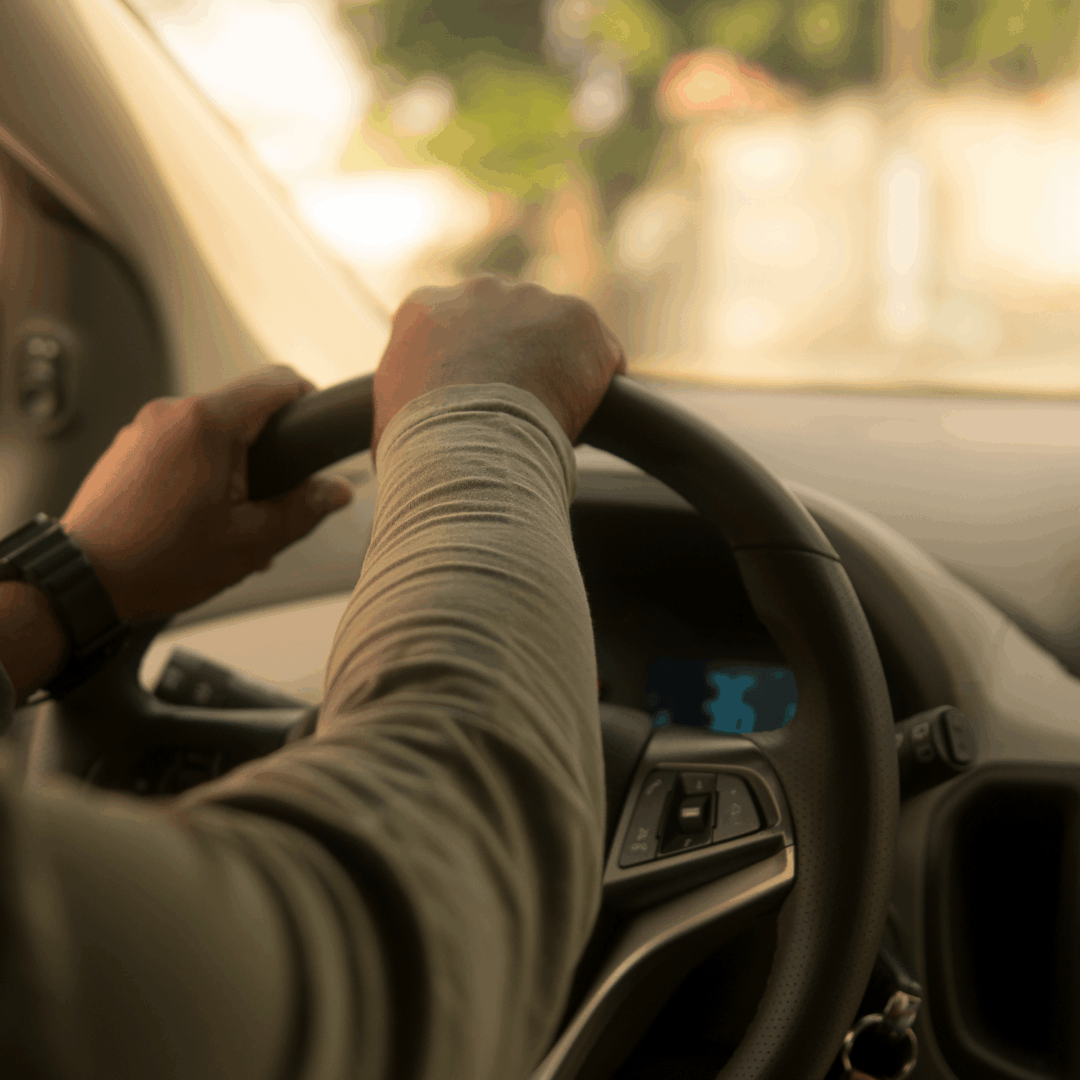West Virginia Slip and Fall
Slip and fall accidents in West Virginia are among the leading causes of preventable injuries, often resulting in broken bones, head trauma, and long-term medical complications. According to the Centers for Disease Control and Prevention, falls account for millions of emergency room visits in the United States each year, showing just how dangerous a simple slip can be when property owners fail to maintain safe conditions. For West Virginia residents, these accidents frequently occur in grocery stores, apartment complexes, workplaces, and public sidewalks where hazards are left unaddressed.
West Virginia law holds negligent property owners accountable when their carelessness causes serious harm. Victims of slip and fall accidents may be entitled to compensation for medical expenses, lost income, pain and suffering, and future care needs. However, insurance companies often try to minimize payouts, which makes it essential to have an experienced advocate on your side.
At Kaufman & McPherson, we have spent decades standing up for West Virginia families injured in slip and fall accidents. Our attorneys know how to investigate hazardous property conditions, prove negligence, and fight for the maximum recovery available under state law.
If you or someone you love has been hurt in a slip and fall accident in West Virginia, do not wait to get legal help. Call Kaufman & McPherson today to schedule a free consultation and learn how we can help you pursue justice.
How Much Money Can You Recover for a Slip and Fall Injury in West Virginia
When you suffer a slip and fall accident in West Virginia, the amount of compensation you may recover depends on several legal and factual factors. Courts look at the severity of your injuries, the cost of medical care, and the degree of negligence that contributed to the accident. Because every case is different, settlements and jury awards can range from modest amounts to significant recoveries that cover a lifetime of expenses. The attorneys at Kaufman & McPherson guide you through this process by investigating your claim, negotiating with insurers, and pursuing the maximum compensation available under West Virginia law.
Understanding the Types of Damages in a West Virginia Slip and Fall Case
Slip and fall injury claims in West Virginia allow victims to pursue both economic and non-economic damages. Economic damages cover measurable financial losses such as hospital bills, while non-economic damages address pain and suffering or reduced quality of life. According to the Cornell Law School Legal Information Institute, damages are designed to make the injured party whole again by restoring what was lost after negligence causes harm.
Economic Damages and Financial Losses
Economic damages are the easiest to calculate because they come with receipts and financial records. These may include ambulance transportation, hospital stays, surgery, rehabilitation, and prescription costs. Victims may also claim lost wages if they are unable to return to work. The National Institutes of Health stresses that medical documentation is critical, as treatment records show the true cost of recovery and become essential evidence in court.
Future Medical Needs and Long-Term Care
Some slip and fall victims never fully recover and require ongoing care. This may include physical therapy, adaptive equipment, or in-home assistance. The Agency for Healthcare Research and Quality highlights that long-term rehabilitation is common after traumatic injuries, and future medical needs must be calculated carefully to prevent victims from facing uncovered expenses later.
Loss of Income and Reduced Earning Potential
When injuries prevent you from returning to your job or limit your ability to earn in the future, you may seek compensation for diminished earning capacity. Vocational experts often testify in court to demonstrate how injuries affect a person’s ability to perform their profession. The U.S. Bureau of Labor Statistics provides data on wage loss trends that attorneys use to strengthen these claims.
Non-Economic Damages and Quality of Life
Non-economic damages recognize that the consequences of a slip and fall injury extend beyond financial losses. Victims often face lasting pain, emotional distress, and lifestyle changes. The American Bar Association explains that pain and suffering are key components of civil justice because they account for the human impact of negligence.
Pain and Suffering in Slip and Fall Lawsuits
In West Virginia, courts may award damages for physical pain that lingers after the accident. Victims may describe constant discomfort, mobility challenges, or the inability to perform daily tasks. Doctors and therapists often provide testimony that helps jurors understand how injuries affect long-term quality of life.
Emotional Distress and Psychological Harm
A serious slip and fall injury can trigger depression, anxiety, or even post-traumatic stress disorder. The National Center for PTSD notes that traumatic events frequently cause lasting mental health problems, which means that compensation must account for psychological as well as physical harm.
Loss of Enjoyment of Life After an Accident
Victims who can no longer participate in hobbies, family activities, or social events may qualify for compensation for loss of enjoyment of life. The Mayo Clinic emphasizes how physical disabilities and chronic pain disrupt daily living, which illustrates why courts consider this type of damage.
Factors That Influence Settlement Value in West Virginia
While damages categories provide a framework, the actual value of a slip and fall claim depends on case-specific details. Courts and insurance companies evaluate liability, available coverage, and the severity of injuries before deciding settlement amounts.
The Role of Comparative Negligence in West Virginia
West Virginia follows a modified comparative fault rule. If a victim shares some blame for the accident, their recovery may be reduced. Under West Virginia Code §55-7-13a, compensation decreases by the victim’s percentage of fault. The Legal Information Institute explains how comparative negligence laws vary by state, making local legal knowledge crucial.
Insurance Coverage and Settlement Negotiations
The amount of available insurance coverage directly affects how much money victims can recover. Property owners may have policies with different limits, and insurers often try to minimize payouts. The National Association of Insurance Commissioners reports that insurance adjusters regularly use settlement tactics that benefit the company rather than the injured party, which is why legal representation is so important.
How West Virginia Juries Calculate Slip and Fall Awards
In cases that go to trial, juries play a major role in determining damages. They consider evidence of medical expenses, expert testimony, and the personal impact of the injury. Because juries have broad discretion, results can vary widely.
The Multiplier Method for Calculating Pain and Suffering
Many courts and insurance companies apply the multiplier method to estimate non-economic damages. This involves multiplying the victim’s medical expenses by a number that reflects the severity of the injury. The Nolo Legal Encyclopedia notes that this method is widely used across the United States to calculate fair settlements.
The Per Diem Approach to Compensation
Another method assigns a daily value to the victim’s suffering, multiplied by the number of recovery days. Although less common, this approach highlights the ongoing burden of living with injuries. The United States Courts system recognizes this method as a valid approach in civil cases where daily struggles define recovery.
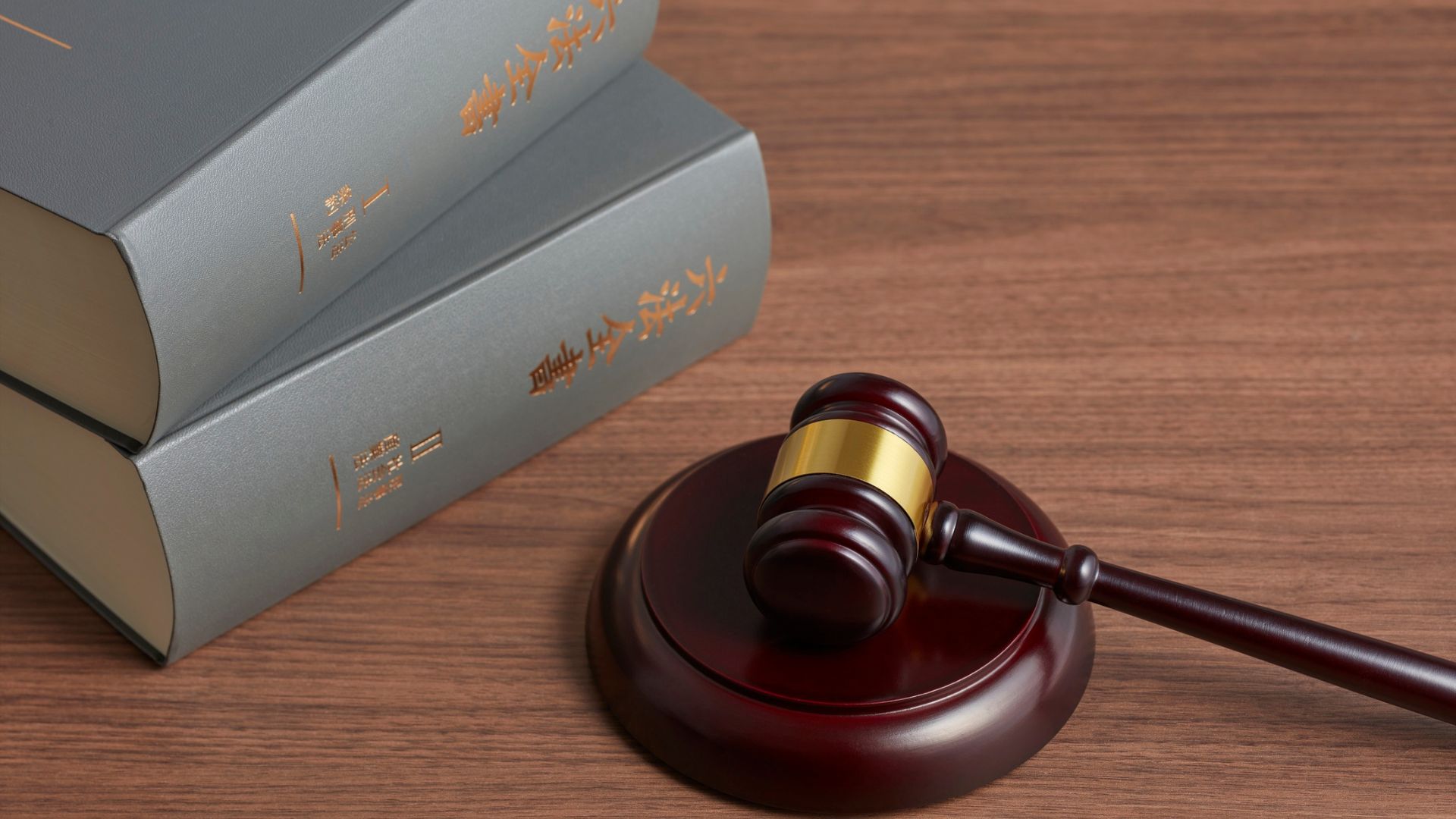
How West Virginia Slip and Fall Lawyers Prove Negligence in Court
Proving negligence is the foundation of a successful slip and fall case in West Virginia. To recover compensation, an injured victim must show that a property owner or manager failed to maintain safe conditions and that this failure directly caused the accident. Because courts require clear and convincing evidence, experienced attorneys rely on a combination of investigation, expert testimony, and legal strategy to demonstrate negligence.
Establishing the Duty of Care in West Virginia Premises Liability Cases
Every slip and fall claim begins with the concept of duty of care. Property owners have a legal obligation to keep their premises safe for guests, tenants, and customers. If they neglect this responsibility, they can be held accountable for resulting injuries. The West Virginia Judiciary outlines how civil courts apply premises liability standards, ensuring that accident victims have the opportunity to seek justice.
How Property Owners Owe a Duty to Visitors
Courts classify visitors as invitees, licensees, or trespassers. Invitees, such as customers in a store, are owed the highest level of protection. Licensees, like social guests, are also owed a duty of care, but to a slightly lesser extent. Even trespassers may have limited protections under certain circumstances. According to the Legal Information Institute at Cornell Law School, these distinctions guide how courts analyze negligence in premises liability cases.
Examples of Duty in Everyday West Virginia Locations
Supermarkets must clean spills promptly, landlords must maintain safe stairways, and businesses must ensure parking lots are well-lit. When owners fail to take these precautions, the risk of serious injury increases significantly. Courts frequently evaluate these everyday scenarios to determine whether a property owner breached their duty of care.
Gathering Evidence to Prove Negligence
Without strong evidence, it is difficult to prove that unsafe conditions caused a slip and fall accident. Attorneys in West Virginia focus on collecting documentation that ties the hazard directly to the injury.
The Role of Photographs, Videos, and Witness Statements
Pictures of the accident scene, surveillance footage, and testimony from witnesses often provide the clearest proof of unsafe conditions. The U.S. Courts system recognizes that visual and testimonial evidence carries significant weight in civil trials, which is why attorneys move quickly to preserve it.
How Surveillance Footage Strengthens a Claim
Security cameras in stores, apartment complexes, and parking garages may capture the exact moment of a fall. When attorneys obtain this footage, it can serve as undeniable proof of negligence. The National Archives notes that records and video evidence can degrade or disappear quickly, making early preservation critical.
Why Witness Testimony Matters in West Virginia Trials
Neutral witnesses often provide unbiased accounts of an accident. Their testimony can confirm that a spill was left uncleaned for hours or that lighting in a stairwell was inadequate. Juries in West Virginia frequently rely on these accounts when weighing negligence.
Using Expert Testimony in Slip and Fall Cases
Experts play an important role in explaining complex details to judges and juries. In slip and fall cases, these professionals help connect unsafe conditions to the injuries suffered by the victim.
Safety Experts and Building Code Specialists
Attorneys often call safety professionals who understand building codes and industry standards. The Occupational Safety and Health Administration sets safety guidelines that businesses must follow, and violations of these standards can be used as compelling evidence in court.
Medical Experts and Injury Documentation
Doctors and rehabilitation specialists provide medical opinions that connect an accident to a specific injury. Their testimony often includes long-term treatment needs and the likelihood of permanent disability. According to the National Institutes of Health, expert medical documentation is essential not only for treatment but also for legal claims.
Economic Experts and Financial Losses
Attorneys may also use economists to explain how injuries affect earning capacity. The U.S. Bureau of Labor Statistics provides national data that helps quantify wage losses, which supports claims for reduced future income.
Proving Breach of Duty and Causation in West Virginia Courts
To succeed in court, attorneys must show that a property owner breached their duty of care and that this breach directly caused the accident. This involves piecing together evidence into a clear narrative that resonates with judges and juries.
How Attorneys Demonstrate Breach of Duty
Lawyers prove breach of duty by showing that the property owner knew or should have known about the hazardous condition but failed to fix it. The National Safety Council emphasizes that many falls are preventable when basic safety standards are followed. This principle is central to proving negligence in slip and fall cases.
The Importance of Proving Causation
Even when negligence is clear, victims must prove that the hazard directly caused their injuries. The Mayo Clinic explains how injuries like fractures, concussions, and spinal damage can be linked to falls, and attorneys use this medical knowledge to prove causation in court.
Overcoming Defense Arguments in Slip and Fall Trials
Property owners and insurers often argue that the victim was careless or that the injury was unrelated to the accident. Skilled attorneys counter these defenses with medical evidence, safety inspections, and expert testimony.
Who Is Responsible for Paying Medical Bills After a Slip and Fall in West Virginia
Slip and fall accidents often lead to expensive medical care that victims cannot afford on their own. Hospital stays, surgeries, rehabilitation, and ongoing therapy can place a tremendous financial strain on families. In West Virginia, determining who pays these medical bills depends on liability, available insurance coverage, and how negligence is proven in court. Attorneys play an essential role in helping victims shift the financial burden from themselves to the responsible party.
The Role of the At-Fault Property Owner in Covering Medical Costs
Property owners in West Virginia have a legal obligation to maintain safe premises. When their failure to repair hazards or warn visitors of dangers causes injury, they may be held financially responsible for the victim’s medical expenses. The West Virginia Legislature outlines civil liability laws that require negligent parties to compensate injured individuals for the harm they cause.
How Negligence Transfers Responsibility for Medical Bills
If an attorney can prove that a store owner, landlord, or business operator failed to maintain safe conditions, then that party becomes liable for all related damages, including medical bills. Courts in West Virginia require evidence of both negligence and causation, which is why legal representation is often necessary to succeed in these cases.
Examples of Negligence in Common Slip and Fall Claims
Examples include supermarkets that ignore wet floor hazards, landlords who neglect broken stair rails, or restaurants that fail to clean up spills promptly. These unsafe conditions are often cited in slip and fall cases and form the basis of financial responsibility when victims are hurt.
The Role of Insurance in Paying Medical Bills
Insurance coverage plays a critical role in slip and fall cases. While victims may initially rely on their health insurance, the goal is to ultimately hold the negligent party’s insurance responsible for covering all medical costs. The National Association of Insurance Commissioners explains how insurers evaluate claims and why legal advocacy is often required to secure full payment.
Health Insurance Coverage After a Slip and Fall
Health insurance often pays the first round of medical expenses after an accident. However, insurers typically reserve the right to seek reimbursement if a settlement is later obtained. This process, known as subrogation, ensures that the ultimate financial responsibility lies with the negligent party.
How Subrogation Affects West Virginia Slip and Fall Victims
Subrogation allows a health insurer to recover costs directly from a settlement or court award. According to the U.S. Department of Labor, this process is standard in personal injury claims, but it can reduce the final payout to victims if not negotiated properly. Attorneys often intervene to limit the impact of subrogation and maximize the victim’s recovery.
Property Insurance and Liability Coverage
Property owners usually carry liability insurance that covers injuries occurring on their premises. In slip and fall cases, this insurance can be the primary source of payment for hospital bills, ongoing therapy, and future treatment needs. The Insurance Information Institute notes that liability coverage is specifically designed to protect property owners from claims of negligence.
Why Insurance Companies Resist Paying Full Medical Bills
Insurers often argue that some treatments are unnecessary or unrelated to the accident. This strategy reduces payouts but leaves victims with unpaid bills. Skilled attorneys present medical evidence and expert testimony to counter these tactics and secure fair compensation.
Medical Liens and Hospital Billing in West Virginia
When health insurers or property insurers delay payment, hospitals may place liens on settlements to ensure they are reimbursed for treatment costs. This creates additional legal challenges for victims trying to move forward with their lives.
How Medical Liens Work in Personal Injury Cases
A medical lien is a legal claim placed by a healthcare provider on a settlement or judgment. The National Library of Medicine explains that medical billing and reimbursement systems often involve complex contractual obligations, which makes liens a powerful tool for hospitals to recover costs.
Negotiating Medical Liens in West Virginia Cases
Attorneys frequently negotiate with hospitals and doctors to reduce the size of medical liens, allowing victims to keep more of their settlement money. Experienced legal representation can make a substantial difference in the outcome of these negotiations.
The Importance of Timely Legal Action to Address Liens
If liens are ignored, they may consume a significant portion of the settlement. Filing timely responses and working with medical providers ensures that victims are not unfairly burdened by excessive charges.
How Courts Decide Who Pays for Medical Bills
If a slip and fall claim goes to trial, the court ultimately decides who bears the financial responsibility for medical bills. Juries consider negligence, liability, and the extent of damages before issuing a verdict.
The Role of Comparative Negligence in Court Decisions
West Virginia follows a modified comparative negligence system, which means victims may have their compensation reduced if they share responsibility for the accident. The Legal Information Institute explains that if a victim is found more than 50 percent at fault, they cannot recover damages.
Why Comparative Negligence Impacts Medical Bill Payments
If a jury finds the injured person partially responsible, the defendant’s share of medical bill payments decreases accordingly. This makes it crucial for attorneys to present strong evidence, minimizing the victim’s fault.
How Juries Evaluate Evidence in Slip and Fall Trials
Juries consider witness statements, medical records, expert testimony, and photographic evidence when deciding liability. The U.S. Courts system confirms that civil juries have broad discretion in weighing these factors, which directly impacts whether the defendant pays for medical expenses in full or in part.
Contact a West Virginia Slip and Fall Lawyer Today
Recovering from a slip and fall accident is never easy. Medical bills, lost wages, and the stress of dealing with insurance companies can overwhelm even the strongest families. You should not have to carry this burden alone when a negligent property owner is responsible for your injuries. Our experienced attorneys are here to fight for your rights and help you secure the financial recovery you deserve.
At Kaufman & McPherson, we have decades of experience representing injured clients throughout West Virginia. We understand the local courts, the laws that protect victims, and the tactics insurers use to avoid paying fair settlements. When you choose our firm, you gain dedicated advocates who will investigate your case, gather evidence, and stand by your side until you receive justice.
If you or a loved one has been injured in a slip and fall accident in West Virginia, now is the time to take action. Call Kaufman & McPherson today or reach us through our online contact form to schedule your free consultation. The sooner you contact us, the sooner we can begin protecting your rights and pursuing the maximum compensation available under West Virginia law.
Practice Areas
Trust Us With Your Personal Injury Claim
If you or a loved one have been injured, Kaufman & McPherson will fight for you every step of the way. We will give our all to secure the compensation you rightfully deserve.
Contact usfor a free consultation.
Phone: (304) 449-5157
